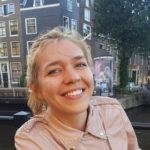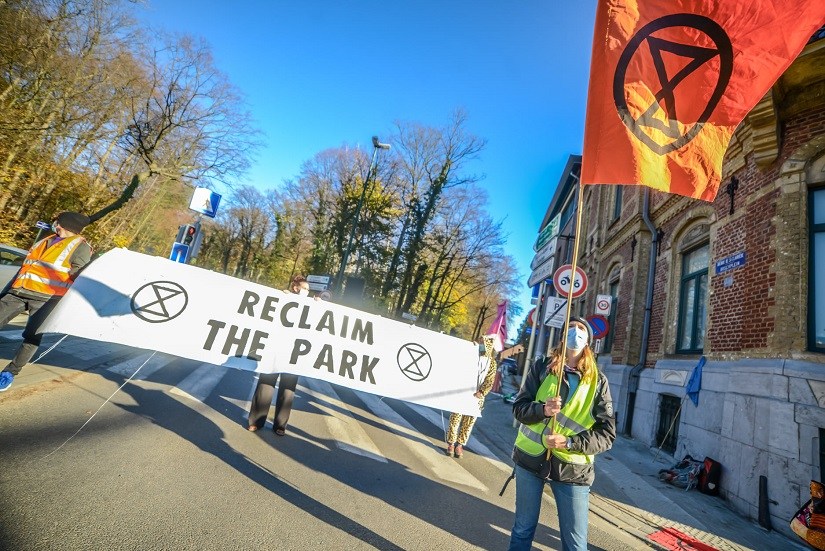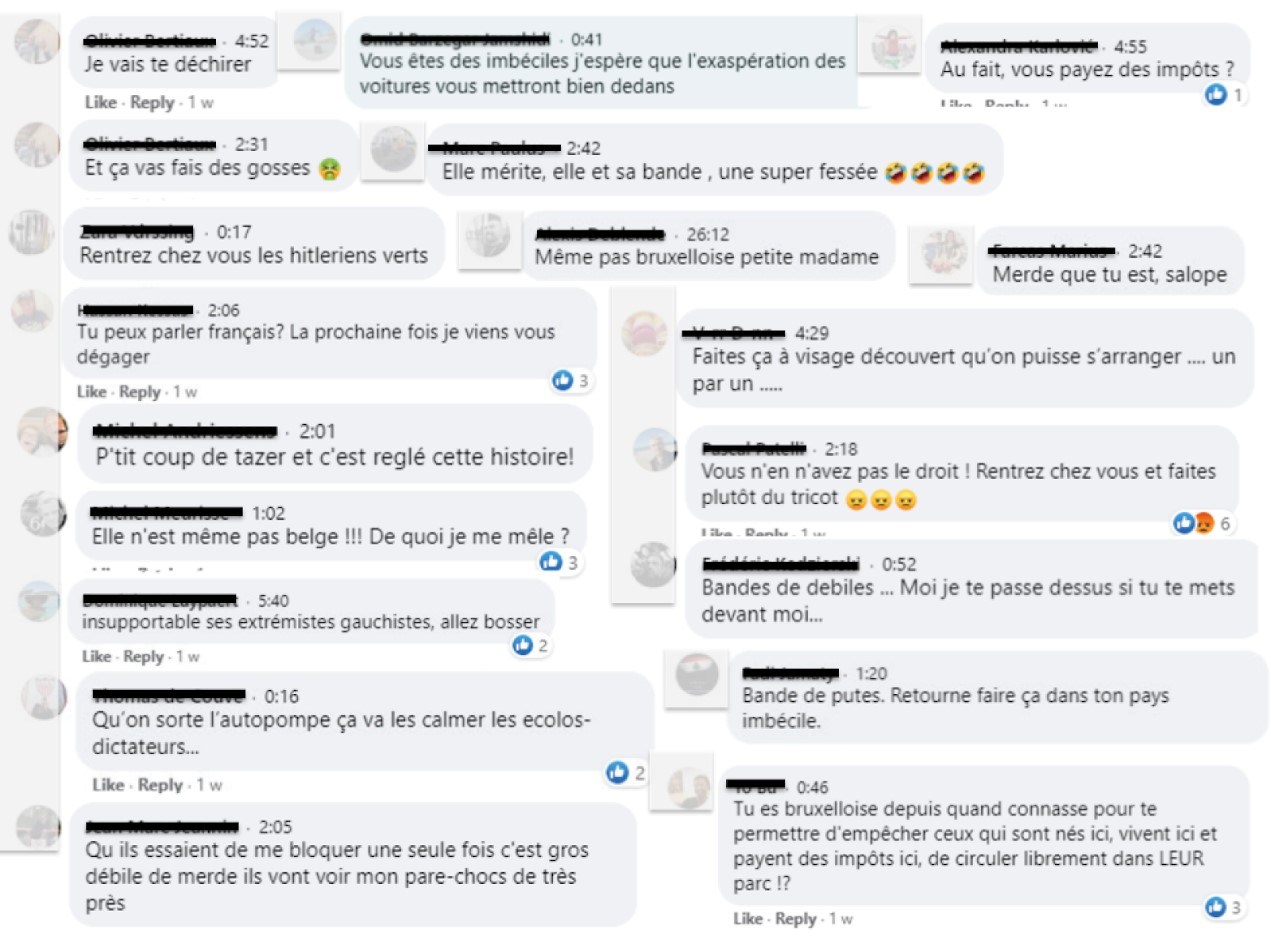14:00, Saturday, 28 November. We looked nervously at our watches. I began the livestream on the Facebook page of Extinction Rebellion Brussels. My fellow rebels swung closed the gates on the entrance from Avenue Louise to Bois de la Cambre.
Our peace stewards waved to car drivers to continue down Avenue Lloyd George. For thirty minutes, we handed out flyers, danced, and waved back to the cyclists (and even a few car drivers) that smiled at us. The police arrived, checked our IDs. We have a standard plan to run such actions safely, everything went smoothly.
Later that evening I discovered over 600 angry comments on the Facebook livestream. A convergence of hate: misogyny, xenophobia, authoritarianism, stereotyping and violence. Here’s some exemplary favorites:
This was a violent personal attack. I won’t defend my identity. It’s a typical rhetorical device to aim at a person’s character to distract from the real issues at hand. I would rather tell you of the convergence of care that brought me and others to block cars’ entrance to Bois de la Cambre, and why we must and will keep coming back to the streets.
People have every reason to feel angry in these hard times. Our medical system is overwhelmed. Many are losing their jobs and tightening their wallets. Our spaces of social interaction are closed. Above the health crisis and the economic crisis looms the ecological crisis: carbon emissions are threatening to tip climate change into run-away feedback loops of rising temperatures. Under these crises, the prioritization of transport by private car is another nail in our coffins.
As one of the greatest regional sources of air pollution, cars can only exacerbate the vulnerability of our respiratory systems to the coronavirus. In Belgium, 21% of COVID deaths are attributed to the person’s long term exposure to air pollution. On top of that, even after the arrival of vaccines, over 10,000 people will still die in Belgium every year from air pollution, while 16700 have died in the COVID crisis so far.
As the most expensive method of transport, the private car is also inherently inequitable, and in times of economic crisis, people with reduced incomes would be better served by the political prioritization of more affordable transport methods. Less unnecessary car traffic would make the roads more reliable and safe for those more affordable methods of transport - bikes, pedestrians, buses and trams - as well as for the few people who rely on cars such as the elderly and disabled.
The health crisis prompted the adjustment of many Brussels roads to favour pedestrians. The private car takes 70% of public space in Brussels in the form of parking and roads. As peoples’ cultural, educational and gymnastic activities have been closed, the expansion of outdoor space was a logical compensation for the public.
The reopening of Bois de la Cambre became a court case between the communes of Brussels and Uccle. An alliance of citizen movements have conducted various actions to demonstrate the social use of the Bois. Last Monday, the city council compromised to keep closed most of the roads of the Bois. However, other roads throughout the city remain in public dispute as to their final function. One of these is the Avenue Ambassadeur van Vollenhoven in Parc Josaphat, which was a parking before the confinement and is now used principally by children learning how to ride bikes and skate. It was the site of a recent manifestation to keep it reserved for pedestrians.
And why block these roads? Non-violent civil disobedience is a strategy for political change. Through an unusual action, we call attention to the issue, we demonstrate what it would look like if policy chose to prioritize the social and ecological over the individual and the economic. Surely, we contribute to other methods of political change as well, such as the enquete from VUB about the use of Bois de la Cambre, but unfortunately the forms of direct democratic participation of citizens are few, and the issues are grave and urgent. If the Belgian government conducted a national citizens assembly on the ecological transition, we wouldn’t need to block the streets anymore. XR Brussels will be back. And you will find me there. Come say hello.
If you have read thus far, I will tell you who I am. Like many Bruxellois - the 2nd most diverse city in the world in nationalities - I am from everywhere. I grew up between the US and Peru and hold an Irish passport from my grandmother. I now work here in the capital of Europe for an international NGO, but I wanted to integrate in Belgian society. I love Brussels. I love the lively streets of its lower-class neighborhoods. I love the friendliness of its people on a Friday night of world-leading theatre and music. I love the flexibility of its chaotic organization. Je suis chez moi.
Brussels is a city that deserves care: public and civil. The Belgian people deserve care. Our ecosystems need care. The violent verbal oppression of myself and others, non-violently manifesting to defend the health and the safety of all, is violence against people and the earth on which we all depend.
Anya Frances



